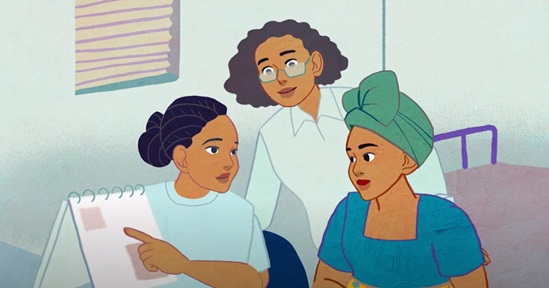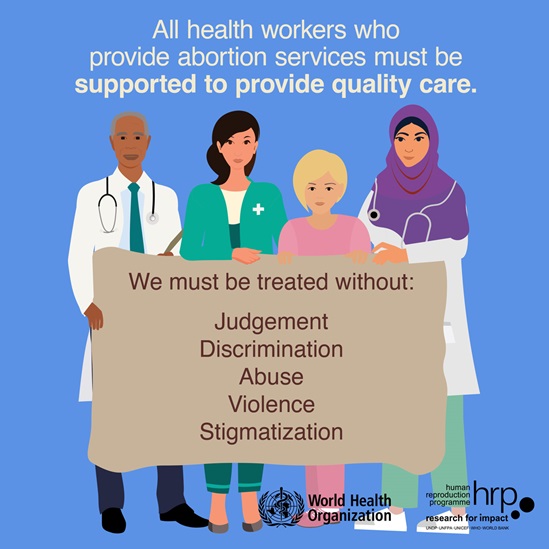Lecturers check a training tool at Kathmandu University School of Medical Sciences, Nepal. WHO is working with Nepal’s Ministry of Health and Population to support training institutions to build the skills of health workers.
Empowering health workers to deliver quality abortion care
Abortion can be safely provided by a wide range of health workers in diverse settings. Expanding the range of health workers who can provide abortion care can encourage optimization of the available health workforce; address health system shortages of specialized health-care professionals; reduce costs and improve affordability; improve equity and equality in access to health care; and increase the acceptability of health services for those who need them. In the Abortion care guideline, WHO provides evidence-based guidance on how to involve a wider range of health workers, and pregnant individuals themselves, in the provision or self-management of abortion care, across the continuum of care.
Delivery of abortion care must be evidence-based, people-centred, non-judgemental, and non-directive, allowing individuals to lead the decision-making about their own care in an informed and supported fashion. To provide abortion care in such a competent manner, all health workers need to be adequately supported. In 2022, WHO launched the Family planning and comprehensive abortion care toolkit for the primary health care workforce. This guide outlines all the competencies (skills, knowledge and attitudes) that health workers need in order to perform quality FP and CAC care.
These competencies can be used in education and training of current and future health workers, to recruit staff, to optimize roles within the health workforce, and to regulate service providers through quality assurance procedures.







